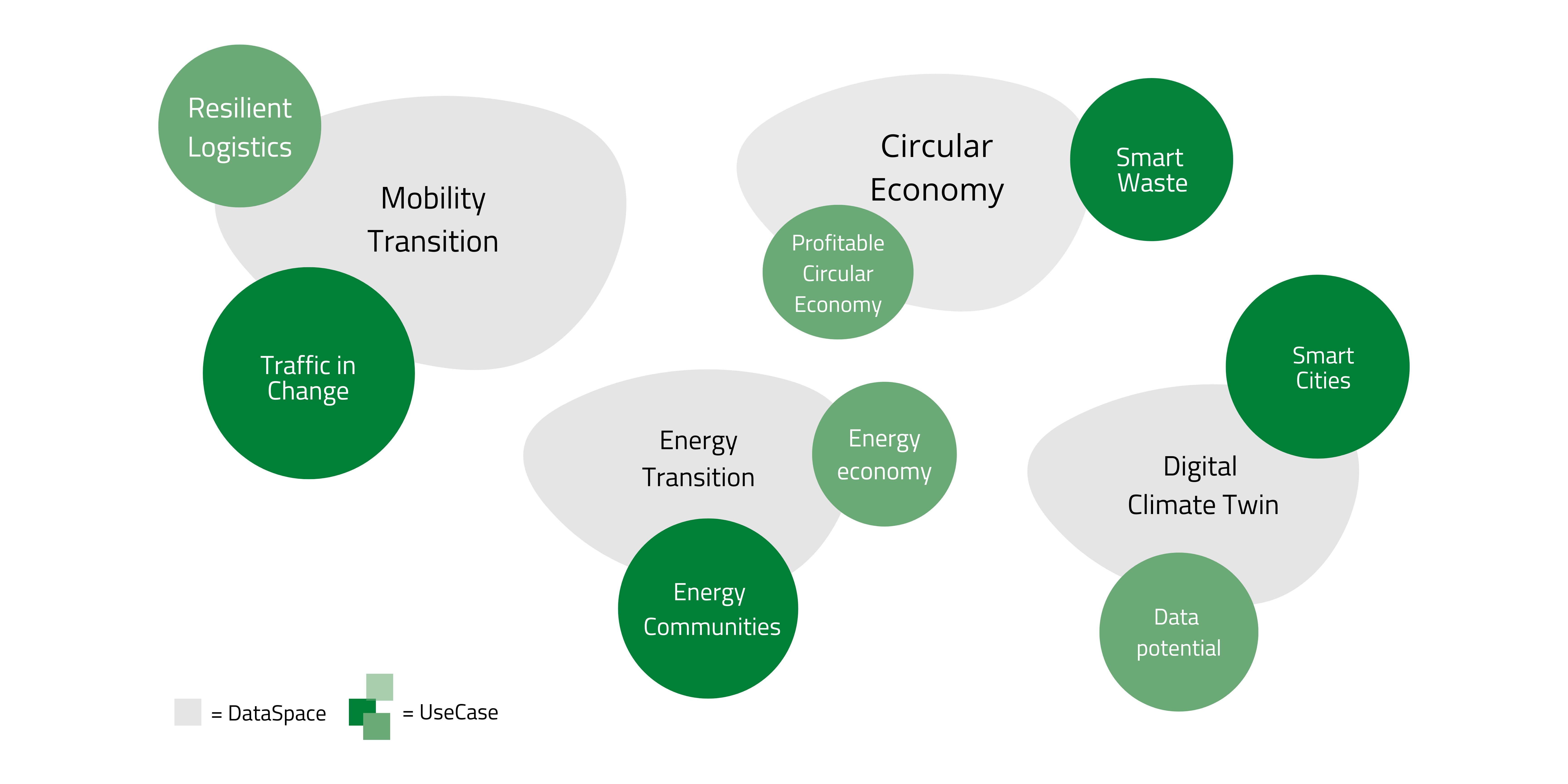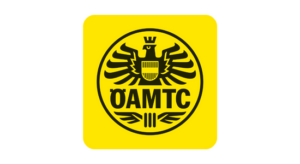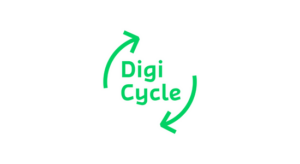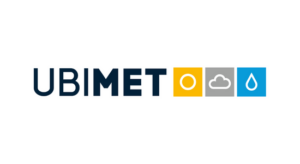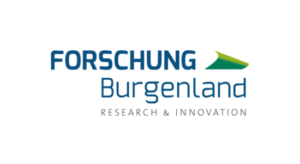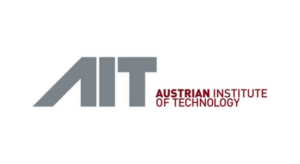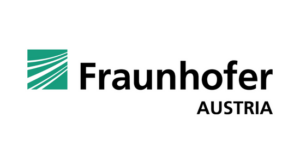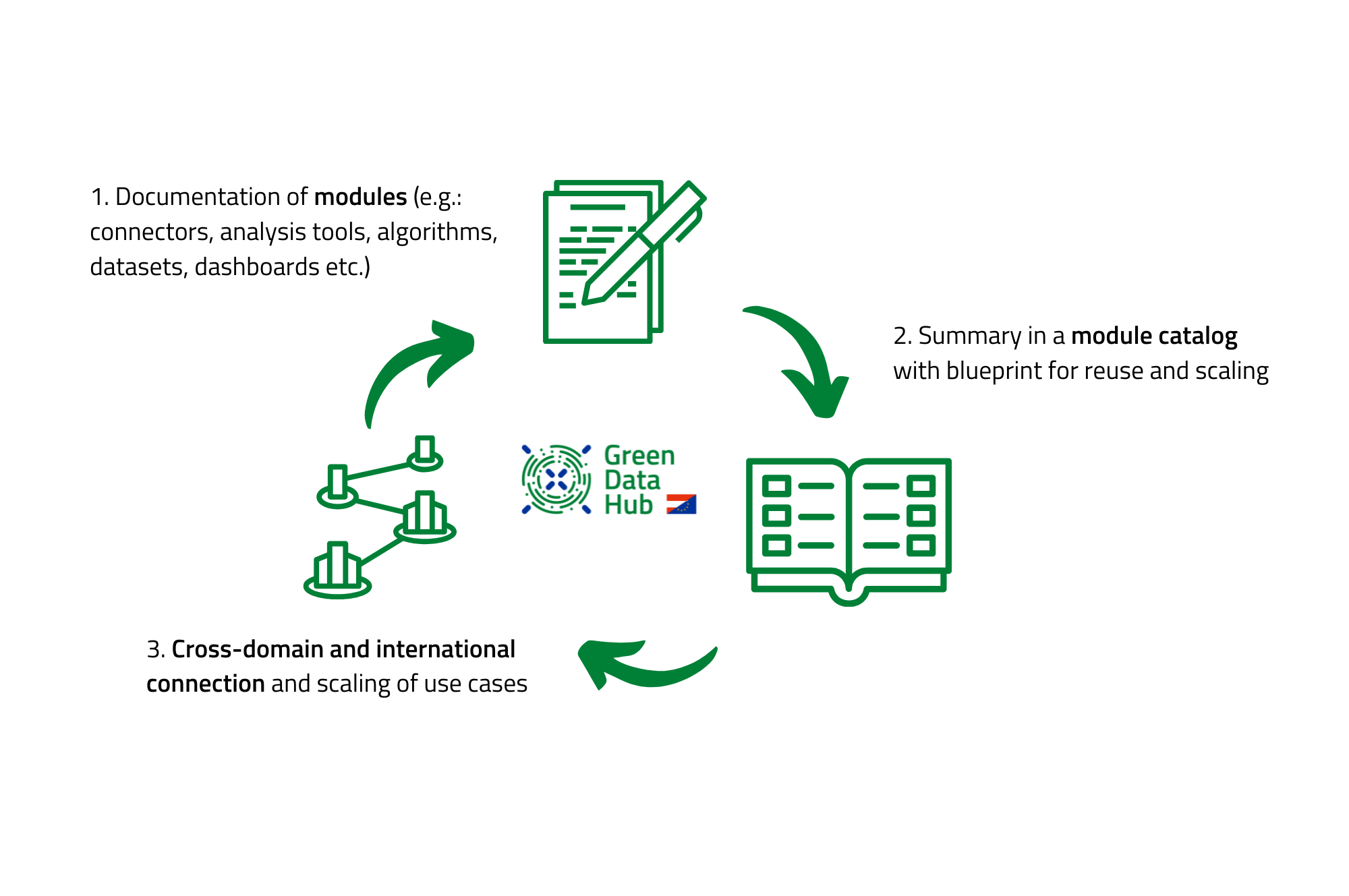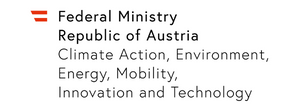Efficiently counteracting the climate crisis
In order to efficiently counteract the climate catastrophe, a joint initiative of stakeholders from business, industry and research is needed in line with the objectives of the European Green Deal, the Paris Climate Goals and the UN SDGs to create a sustainable European data economy.
In Austria, the Federal Ministry for Climate Action, Environment, Energy, Mobility, Innovation and Technology (BMK) has identified strategic goals for environmental protection along the Agenda 2030. With the Linking Green Data Spaces (LiGDS) project, the Data Intelligence Offensive (DIO) supports the implementation of the climate goals anchored in the 2030 Agenda in the domains of energy transition, mobility transition, circular economy and digital climate twin as part of an R&D service funded by the BMK and handled by the Austrian Research Promotion Agency (FFG).
With a network of over 180 members and partners, DIO works on the development and implementation of socio-ecologically sustainable use cases in a data service ecosystem, compliant with modern data management guidelines (data reuse, data sovereignty, data governance, data protection). In concrete terms, this means that clearly structured and delimited, domain-specific use cases are defined, processed and completed. This is done step by step by networking the relevant stakeholders into a continuously expanding community.
Companies, organizations and political institutions are at different stages of digitalization and the datification and use of sustainable technologies. Digitization and the opportunities that arise from new data-based architectures not only create transparency, but also offer the opportunity for the Austrian economy to develop innovative, sustainable business models and the substitution of existing, climate-damaging technologies. By supporting the twin transition, the DIO community will achieve a long-term positive impact on climate, environment and society.
In each domain, in an ongoing process Data Spaces and use cases are evaluated with business and reserach partners. The results are communicated and validated with international and national stakeholder groups:
Business partners of the Green Data Hub Data Spaces
Research partners of the Green Data Hub Data Spaces
Intended results
Domain-specific and cross-domain challenges are first evaluated in order to develop solution approaches in the form of use cases together with experts and in compliance with scientific methods. These use cases are documented to develop reusable modules, and made available for further use in the ecosystem. For this purpose, they are combined into a catalog and with blueprints for the reuse of the modules. Following the ecosystem idea, the module catalog serves as the basis for use case reuse as well as cross-domain and international connection and scaling. The central goal is to develop all generic tools for building Data Spaces. In this way, a toolbox is developed through iterative processes that contains all elements for Data Spaces (plug-and-play solutions) and can be used intuitively by companies.
DIO works in close interchange with leading international initiatives (such as Gaia-X, International Data Space Association (IDSA), the Data Space Support Center (DSSC), the Big Data Value Association (BDVA), etc.).
In addition, to enable international connectivity and scalability, a complementary R&D service International Green Data Spaces (InGDS), funded by the BMK and handled by the Austrian Research Promotion Agency (FFG), will connect Data Spaces and use cases across domains and internationally. The goal is to support the realization of a sustainable European data service ecosystem where sustainable innovations are created.
Based on the previous results, a Roadmap 2030 will be developed in collaboration with domain experts and project partners. This Roadmap 2030 will show which state-of-the-art components need to be further developed or are missing in order to establish a comprehensive data service ecosystem by 2030.
We invite you to participate in Data Spaces for Sustainability!
Cooperation is the guiding maxim in the Green Data Hub: through cross-organizational and international collaboration a multivalent benefit for the public at large is created. We invite you to join forces and create a sustainable European data service ecosystem!
The R&D service Linking Green Data Spaces (LiGSD) is funded by the Federal Ministry for Climate Action, Environment, Energy, Mobility, Innovation and Technology (BMK) and is handled by the Austrian Research Promotion Agency (FFG).
